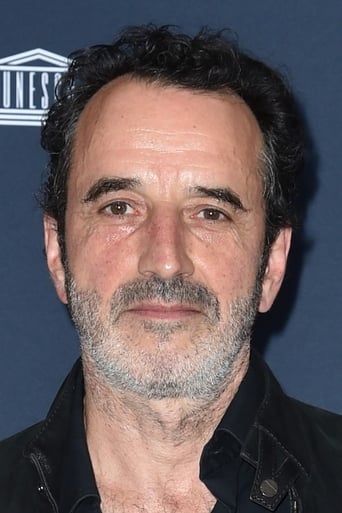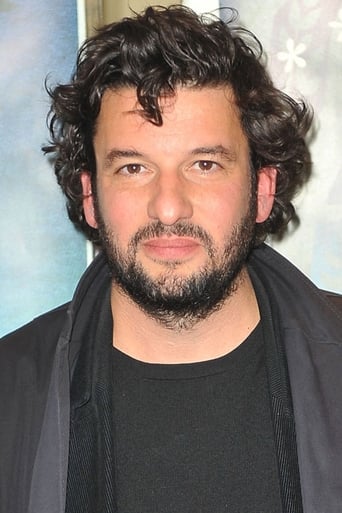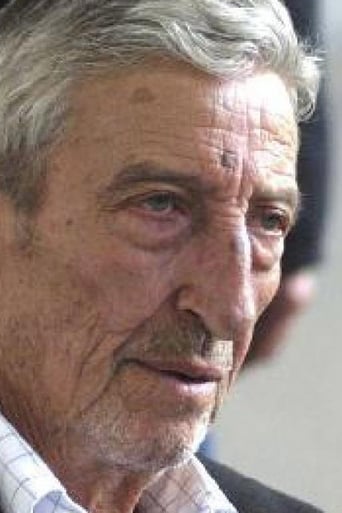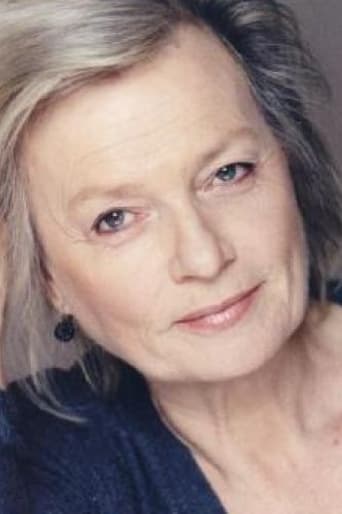Stoutor
It's not great by any means, but it's a pretty good movie that didn't leave me filled with regret for investing time in it.
TrueHello
Fun premise, good actors, bad writing. This film seemed to have potential at the beginning but it quickly devolves into a trite action film. Ultimately it's very boring.
ChanFamous
I wanted to like it more than I actually did... But much of the humor totally escaped me and I walked out only mildly impressed.
marinelad
If you know Chéreau mainly by his version of Alexander Dumas' novel La Reine Margot or maybe even more famous adaptation of Hanif Kureishi's Intimacy, get ready for something very different. His brother is not history based, there are no mass scenes or attractive dissolute individuals, there are no explicate sex scenes, only delicate human story of illness demystification, complicated family relationships and about love in general. You need patience, compassion and strong stomach for this film. About two thirds of the audience left the cinema before the end. I did not even think about it. I loved it. It was unforgettable. Thomas and Luc are brothers who had lost their closeness long time ago and do not keep in touch until the older one gets strange sickness. Thomas' blood cannot coagulate, doctors are not capable to help, his girlfriend leaves him, his parents argue at his bedside and the only one who stays besides him is his younger brother. Entirely confused and unprepared, in the beginning Luc resists the need to stay with his brother. In a sad hospital surrounding he meets every day a cold doctor, dense nurses and quiet, resigned patients. With no disgust, Chéreau shows plenty of ugly scars, wrinkled skin, hairs, bruises, shiners and burdensome long lasting medical procedures that are not pleasant for sure, but do prepare for death. The sequence where Luc meets nineteen-year old Manuel is astonishing. Gay-oriented man notices Manuel's big eyes and gorgeous lips, still present traces of unusual beauty. During the spontaneous chat with this cut-like-a-piece-of-meet boy full of wounds and scars Luc feels more empathy and warmth than he feels for his own brother. An affecting scene when Manuel's and Luc's hands touch will later repeat with Thomas, when closeness they used to have in their childhood is re-established between two brothers. Retrospectively mixed events unavoidably lead to the fact they are left all alone, with no partners and parents, aware of inescapable death. The act of dying will not be shown so there will be no real cathartic discharge. The right song used at the right place provokes so appalling shudders that every future listening to the same song will surely bring them back. The bitter voice of Marianne Faithful in "Sleep" from her album "A secret life", the song so beautiful and so sad conjures the climax up. This is where the soundtrack starts and ends. Ashes to ashes, dust to dust, as the song says.
B24
When I saw this film recently on the Sundance Channel, I had no advance knowledge of it. That is how I prefer to watch any film, but publicity -- being what it is -- usually stands in the way of any such cleanly objective approach.In this case, the story is told in segments that play around with chronological time yet achieve an overall effect of linearity. Central to the film are scenes in the hospital that capture as no other film I have seen the stark and compressed place where life and death coexist. Normally that suggests soap opera bathos, as in such TV dramas as ER or General Hospital. But here is only an overwhelming display of truly remarkable clinical minutiae, against which an inner drama between the characters is allowed to play out either in silence or in visual takes showing the characters reacting to an unfolding revelation of who they really are and how they relate to each other. The director achieves his goal through understatement, with few exceptions. Quintessentially French.
Even the love scenes, such as they are, have a clinical feel to them. If I have one negative comment, it is that the film lacks any contrasting relief from its lugubrious tone, no touch of irony or brief bit of self-effacement. Small wonder some viewers may find it flat or uninspiring.Yet the tacit theme of finding new ways of looking at oneself through suffering and change stands out. The two brothers are seen to rekindle a relationship that had been lost or misplaced, even as death approaches inexorably. I would not mind sitting through it again to examine more closely some of its subtleties hiding behind the sledgehammer reality of hospital life.
frako39
***MILD SPOILERS*** Months ahead of its release in France, this screened at the San Francisco International Film Festival. Bruno Todeschini stars as an older brother who is dying of some strange platelets disease -- he's in danger of hemorrhaging to death at any time. His younger brother (Eric Caravaca), with whom he's never had much of a relationship, must take care of him--takes him to their childhood summer house in Brittany. This movie is unsparing. It's hard to watch an actor put himself through such grueling paces such as becoming dangerously gaunt, letting himself be treated as a hospital patient (injected, rolled over, shaved in near-real-time from his nipples to his scrotum), collapsing from a too-real-looking nosebleed. I was pretty shaken by this film. My tears were for the mystery of family love and brotherhood, what it means to think you haven't felt very much about somebody and then to realize that person's going to die, and he's your brother. Michel Ciment, guest programmer, spoke before the film and called it "uncompromising." It seems Patrice Chereau (QUEEN MARGOT) is headed in the direction of the completely stark and unsparing film. When I saw the younger brother's body entwined with his lover's, I was suddenly reminded that Chereau had made INTIMACY, the English-language film starring Kerry Fox that was so controversial because of her on-camera fellatio scene. What I liked about HIS BROTHER is its unsparingness. It doesn't try to console you for the facts of the story: that a man is probably going to die, and his estranged, resentful younger brother has to deal with it. The movie seems to be stripping everything down to the bones. The brothers do have a bond, but they can't find it until they exclude everything else from their lives, including the others that they assumed they loved more. There's a prolonged pre-surgery shaving scene that seems to be preparing us for the "cutting off" of the other relationships. Two nurses methodically prepare Thomas by putting paper under him and using an electric shaver on his armpits and chest. Then they apply a razor to get the uneven parts, all the time asking, "Are you all right?" as they work right down to his genital area. ("This will pull a little.") I guess some of the tension comes from wondering if they will nick him and cause another hemorrhage, but my main reaction was a kind of impatient boredom, wondering why Chereau was spending so much time on the shaving. That scene shows how clinical the movie was, and what a relief it finally is to be free of the hospital. The film does jump around, from "August" to "March" and back again, from Brittany to the hospital to Brittany, etc. It opens with the brothers sitting on a bench at the beach, listening to an old native talk about shipwrecks and death, stuff washing up. Not sure why Chereau cut up the time and locales the way he did, and I'm not sure it was effective. Maybe it was to give us temporary relief from the hospital scenes, to long to go to Brittany for good. There the two brothers are alone with their childhood memories, when they had a relationship. It's like their adulthood no longer matters. In one cathartic moment, when the younger brother Luc catches Thomas's girlfriend running away for good and impulsively kisses her, you find out that Thomas was "the first boy [Luc] ever had"--his brother masturbated him. The movie's not suggesting that that "made" him gay, but that the brothers had an intimacy they have since lost.
Benjamin Stello
Director Patrice Chereau, famous for many great films, made this movie. This, of course, let me hope that I would see a good film, at least. But no, this one is not. It is a slow film, and boring.Two brothers with a problematic relationship in the past, find together again when the elder one gets a dangerous disease and asks his brother to accompany him to several doctors.So far, so good: This could have been a typical French film about relationships. This could have been a sad tragedy, watching the one brother getting ill. This could have been a good movie, after all, because the acting is really good. But, I can only repeat: This is a boring, slow, far too long picture. The script is poor, and the directing uninspired. Very disappointing.





